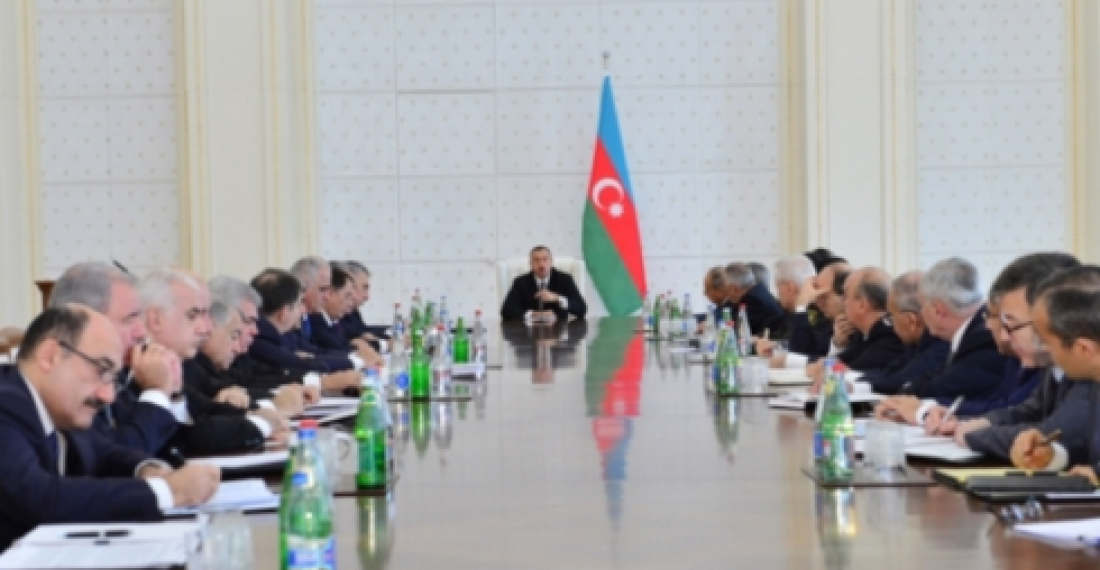Addressing a meeting of the Cabinet of Ministers on Monday (7 October), the President of Azerbaijan Ilham Aliev accused the international community of double standards in the way it was dealing with the Nagorno-Karabakh conflict.
Referring to efforts to resolve the conflict Aliev said:
"Unfortunately, the past months have marked no progress in the settlement of the Nagorno-Karabakh conflict. But we have become very powerful. The difference between Azerbaijan and Armenia is deepening and increasing. Recent events have once again showed that Armenia is not capable of living independently. It is in a dependent position. Even top-ranking Armenian officials are forced to admit that Armenia is not capable of ensuring its security itself."
The President added:
"It is our hope that peaceful negotiations will yield results and Armenia will analyse the situation to admit the reality that it must withdraw from the lands that have nothing to do with Armenia."
Aliev accused the international community of double standards in its dealings with Azerbaijan. He said
"We are well aware that in many cases international legal norms are grossly violated across the globe, and that there are double standards. In some cases resolutions of the UN Security Council are implemented in just couple of hours, but when it comes to Azerbaijan-related resolutions - they were adopted 20 years ago, but have never been executed, and no one is forcing Armenia to do so. We face double standards certainly. It`s no secret. I`m confident that the people of Azerbaijan are well aware that double standards, biased position against Azerbaijan and unfounded good attitude towards Armenia are the major barrier to finding a solution to the Armenia-Azerbaijan Nagorno-Karabakh conflict. But we will continue our efforts. We have to be stronger. We must further keep Armenia isolated from diplomatic, political, economic, regional initiatives. And we will do so."
Aliev was speaking ahead of Presidential elections which will take place on Wednesday and which he is expected to win. International observers have been critical of a restricted political environment which limited the ability of the opposition to mobilise and campaign.
Once the election is out of the way it is expected that diplomatic efforts, spearheaded by the OSCE Minsk Group co-Chair countries (France, Russia and the US), will resume to prepare for a meeting between President Aliev and President Sargsyan of Armenia before the end of the year.
source: commonspace.eu, with APA.







